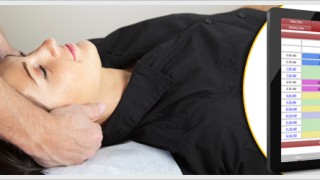Although medical practice is primarily focused on healthcare but it also needs to focus on money for survival. It is a business and like any other business, billing is one of the most important parts that need to be taken care off.
Moreover billing is a very complicated process for almost all the medical professionals with loads of opportunities for things to go wrong like coding errors, processing delays, insurance companies demanding electronic submission and difficulty tracking down unpaid patient accounts. All these and more factors require an EHR system that should meet the medical billing needs to maintain a consistent revenue stream.

But selection of right EHR (electronic health record) for medical practice is a challenging task that requires a lot of research, efforts, time and Cloud Computing in Healthcare. The installation of best EHR software will fit in with the practice’s workflow and increase efficiency, but a bad EHR will halt the workflow and cause confusions and frustrations.
Here are some considerations or best practices that should be considered before selecting and implementing an EHR for the medical billing needs:
Decide what is required and what is not required
Before jumping over the options that are available, it is required to develop a list of criteria that you would expect an EHR service to solve. This should be based on the requirements of whole of the medical and admistrative staff including doctors. After preparing an exhaustive list, next step should be to prioritize the top needs and look for an EHR service that should solve all these needs.
Integrated EHR
The most productive EHR would be one that would integrate and allow billing software, medical records system and clearinghouse work together. This means that all these would work on the same platform and require only one login per user, not one per part of the system. This integration would ensure that everything works together and medical records imperatively communicate with the billing for an efficient and accurate billing process.
Backup and data recovery
Technology can fail at any time and outages do happen. But this outage should never cause loss of billable data. Moreover a medical person is not always tech savvy and practices can be without a robust IT function. To save your practice from this situation, an EHR with proper backup and recovery options should be selected. Always consult professionals in security and backup to make sure that your system doesn’t go down and there is a plan in place to get your data back if it does.
Specialty-specific EHR
EHR software can be customized and designed according to the doctor’s particular specialty so as to deal with the unique characteristics associated with the specialty. It should include the specialty-specific features and templates to practice workflow tremendously.
Certified EHR
EHR system should be tested and certified by an ONC-Authorized Testing and Certification Body (“ONC-ATCB”). This body is the responsible agency for establishing certification standards and certifying vendors.
Discuss and get advice from other physicians and staff
It is wise to discuss your concerns with your fellow doctors and get their advice and views about EHR selection. A first-hand review of the system may be the best way to understand how an EHR system will fit in with a practice’s workflow. So visiting and getting answers to all your queries from a practitioner who is using the EHR software is worth considering. This would give you a clear idea about what kind of EHR would be suited to your practice and what issues you may face with usage or installation.
Spend time installing and learning the EHR
Although installation of EHR is more related to technology but you should spare some time to see the installation process. More than installation, training of the system is most important and requires a lot of time and effort. So after finalizing the EHR, take some time from your practice and learn even the minute parts of the software and excel in your practice with technology.
Matt Wilson – A Healthcare Expert, working with Aegis HealthTech as senior developer from last 5 years. He has extensive experience in Patient Portal Software Development and EHR integration consulting services.



